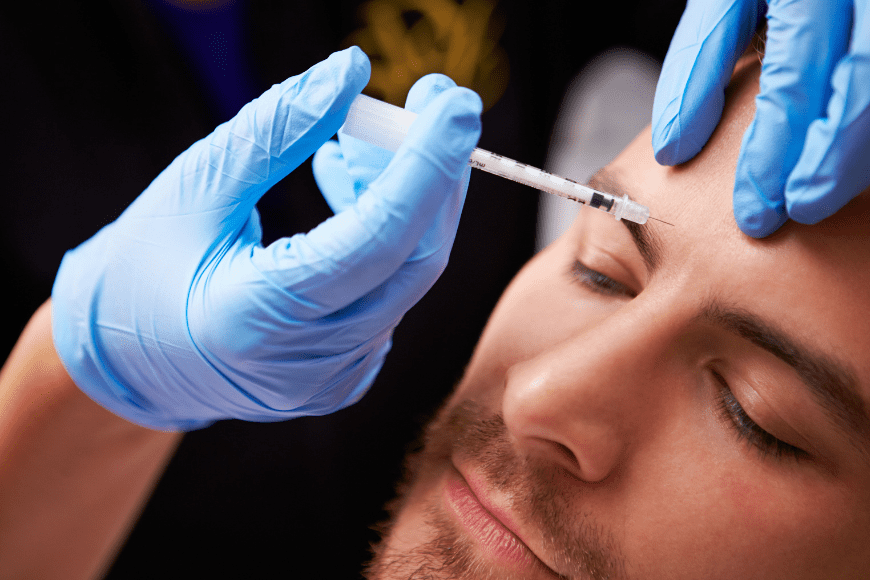Previously, the words “botox” and “men” might not have naturally gone together, but now more and more men are turning to the popular injections to smooth out wrinkles and look younger. So how can botox help men?

For men specifically, botox can be used to treat a variety of aging concerns. Common areas for treatment include the forehead, between the eyebrows (known as the “11” lines), around the eyes, and on the sides of the mouth. Botox can also be used to prevent excessive sweating (hyperhidrosis).
In addition to reducing wrinkles and preventing further skin damage, botox can also be used to create a more masculine look. While botox won’t change the shape of your face, it can be used to subtly enhance certain features such as your brow, chin, and jawline.
You may be thinking, “This sounds great, but what IS botox?”
Botox is a popular injectable used to reduce wrinkles and improve the appearance of skin. The injections contain a form of botulinum toxin, which temporarily blocks the nerve signals that cause your facial muscles to contract and create lines and wrinkles. By relaxing these muscles, botox visibly reduces the appearance of wrinkles and lines while preventing future signs of age from developing.

How long do results last?
Botox treatments for men typically last about three to six months and may require follow-up treatments to maintain results.

Whether you’re looking to reduce wrinkles, enhance your features, or both, botox can be an effective solution for men. When combined with other treatments like fillers and laser therapy, botox can help you achieve a more youthful and masculine look.

